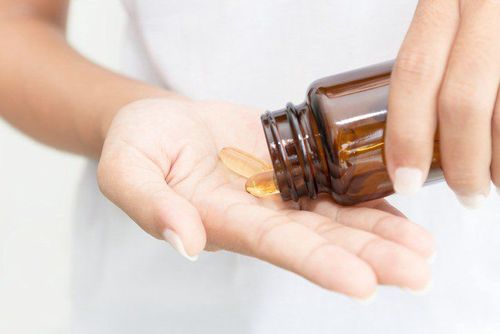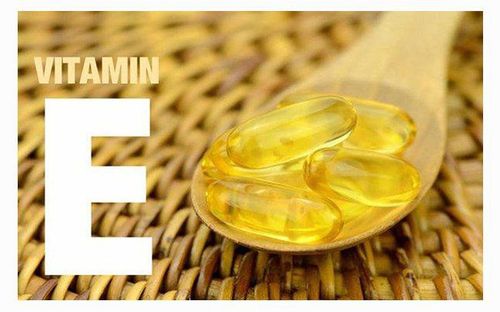This is an automatically translated article.
Vitamin E is a fat-soluble vitamin, is an important component to help maintain the normal functioning of organs in the body is an antioxidant that helps slow down processes that cause cell damage.1. What effect does vitamin E have?
Vitamin E is an important nutrient for vision, reproduction and the health of the blood, brain and skin. Because vitamin E also has antioxidant properties, it can protect your cells against the effects of free radicals, which are molecules produced when the body breaks down food or is exposed to smoke. tobacco and radioactive substances. Free radicals can lead to dangerous diseases like heart disease, cancer and other diseases.
If you take vitamin E because you want to get its antioxidant properties, keep in mind that this supplement may not provide the same benefits as antioxidants naturally found in foods. Therefore, the American Heart Association (AHA) has issued a recommendation that healthy people should supplement with antioxidants including vitamin E by following a reasonable diet rich in fruit. , vegetables and whole grains rather than from dietary supplements, as these supplements pose more harm to health than their benefits.
2. Dosage of vitamin E
The following table shows the Recommended Dietary Allowance (RDA) for the daily amount of Vitamin E you need from food and any supplements.

Liều dùng Vitamin E khuyến nghị

Liều dùng điều trị thiếu Vitamin E
3. How long to take vitamin E?
Depending on health status, nutrition and different ages, the time to use vitamin E will be different, for example:
To recover after laser eye surgery, patients need 343 IU of vitamin E (alpha-tocopheryl nicotinate) and 25,000 units of vitamin A (retinol palmitate) given 3 times daily for 30 days, then continued twice daily for 2 months. For an inherited blood disorder that lowers blood protein levels called Beta thalassemia, you need 298 mg of vitamin E daily for 4-8 weeks. Therefore, to know the exact amount and duration of vitamin E use in accordance with specific health conditions, you need to be thoroughly consulted by your doctor before you start using it.
4. Side effects of vitamin E
When used in appropriate doses oral vitamin E is safe for the body and rarely causes side effects, but when used in high doses can cause:Nausea Diarrhea Fatigue Weakness

Tác dụng phụ của vitamin E là đau đầu
Headache Blurred vision Rash Gonadal dysfunction Increased urine creatine concentration. In addition, there is concern that people in poor health who take high doses of vitamin E are at increased risk of death.
Recent research suggests that taking vitamin E by mouth may increase the risk of prostate cancer or increase the risk of death in people with a history of severe heart disease, such as heart attack or stroke. Therefore, talk to your doctor before taking vitamin E if you have:
Vitamin K deficiency Retinitis pigmentosa Bleeding disorder Diabetes History of heart attack or previous stroke Cancer Head and neck liver disease Vitamin E supplements can increase your risk of bleeding so if you plan to have surgery, stop taking vitamin E two weeks in advance. Also, talk to your doctor about using vitamin E if you are about to have or have recently had a procedure to open blocked arteries and angioplasty in your heart.
Drug interactions
Drugs that interact with vitamin E include:
Alkylating agents and anti-tumor antibiotics: There is concern that high doses of vitamin E may be used affect the effectiveness of these chemotherapy drugs. Taking vitamin E along with anticoagulants or certain herbs will decrease the effectiveness of anticoagulants and increase the risk of bleeding. Statins and niacin: Taking vitamin E with a statin or niacin may be beneficial for people with high cholesterol but may decrease the effects of niacin. Taking vitamin E along with vitamin K might decrease the effects of vitamin K.
Please dial HOTLINE for more information or register for an appointment HERE. Download MyVinmec app to make appointments faster and to manage your bookings easily.
Reference source: Mayoclinic.org. Webmd.com












